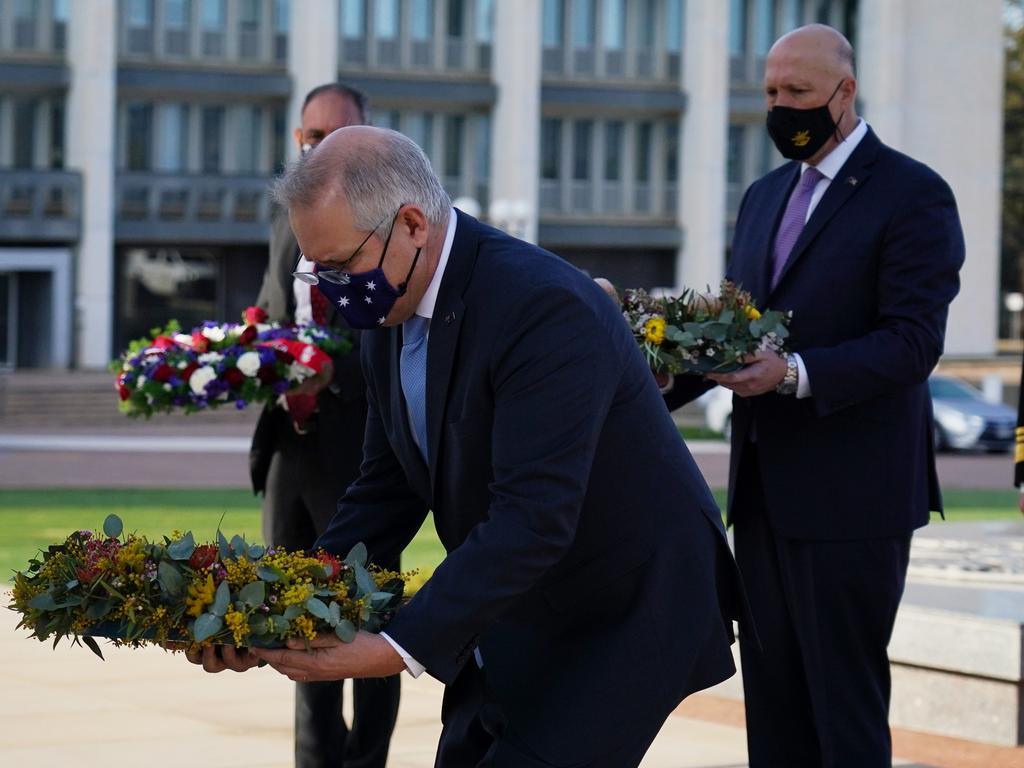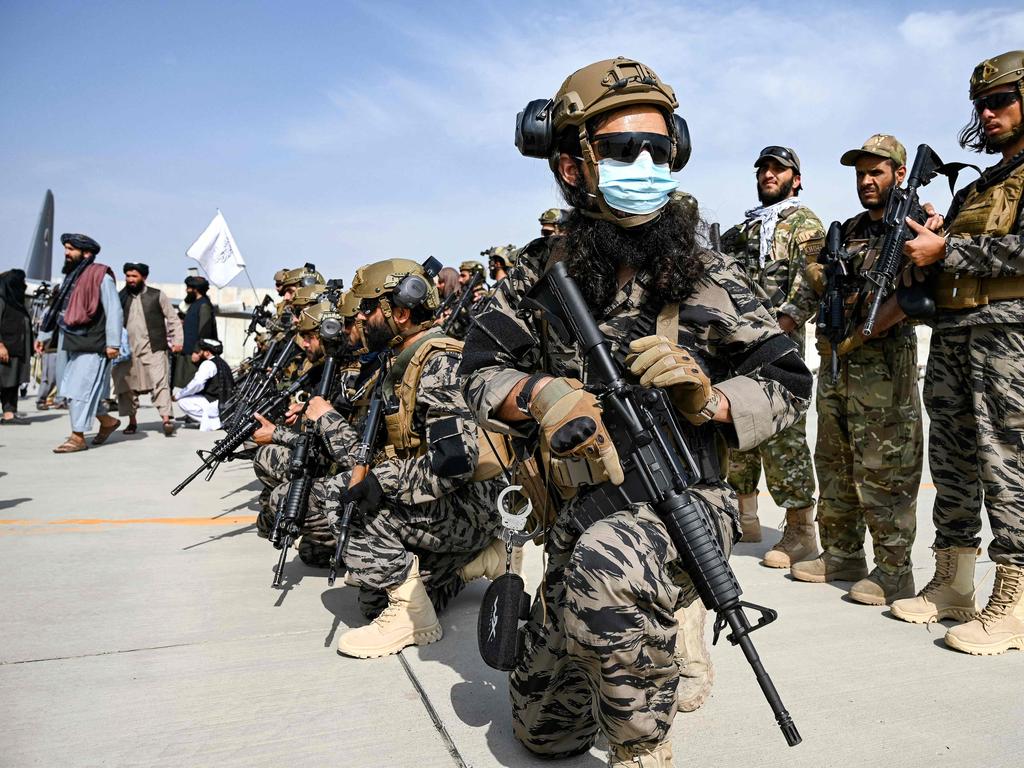Joe Biden makes history – but not in a good way


But here’s the pitiful bit. He was boasting of defeat. No one, he said, had ever mounted an end-of-war evacuation like the operation at Kabul airport, with nearly 120,000 people, mostly Afghans, airlifted to safety.
American presidents are meant to be gracious in victory, not boastful in defeat. Biden has got his role in history wrong. Or has he created a new history?
No one could have conceived or handled the end of the Afghan war worse than Biden did. Yet his speech to the nation was genuinely historic in offering, or perhaps confirming, a profound change in US strategic direction. The President said he was “ending an era of major military operations to remake other countries”.
Biden’s speech thus delivers what Donald Trump and Barack Obama also clearly wanted: an end to nation-building as a legitimate choice in the American foreign policy repertoire.
But Biden’s speech, though full of false choices and strange historical elisions, also signals two other clear and fundamental changes to the US world view.

First, counterinsurgency is dead. More important, liberalism as a meaningful driver of policy is also dead. Biden said, confusingly, that human rights would be at the heart of US foreign policy. This is after delivering 39 million Afghans to rule by one of the most violent Islamist movements the planet has known. Further, Biden declared the US had no national interest in Afghanistan other than preventing its use as a base to attack America. That means the US does not consider Afghan human rights a US interest. That may be defensible before 20 years of military intervention. But after 20 years continuous intervention, involving many explicit and implicit promises, it casts doubt over US commitments.
On the 70th anniversary of ANZUS, that’s a sober reflection. Of course, the US commitment to Australia under the ANZUS Treaty is entirely different from its commitment to the Afghan government it set up. Still, it’s bad karma and political and cultural momentum in the wrong direction. Biden says his only choices were the withdrawal he pursued – abject surrender – or escalation with tens of thousands more US troops. There is a strong case that this is not true, that a US garrison force of 5000 or so, with a strong focus on keeping the Afghan air force ready to intervene, might have been workable.

However, it is the defeat of counterinsurgency and the defeat of liberalism that offer the longest historical results. Just before the US invasion of Iraq, I was fortunate to be part of a very small lunch with Henry Kissinger. He was ambivalent about the invasion, but the key argument he made that day was that under no circumstances should the Americans run their own administration in Iraq. They had to find some local allies and leave the reconstruction of Iraq to them, albeit with generous American support.
In fact, it was the generosity and idealism of the Americans, especially in the post-Cold War euphoria, that led them astray in both Iraq and Afghanistan. They tried, with genuine idealism, to establish something better for the Afghans and Iraqis. In the old days of the Cold War, the CIA would find a local group it could work with and help them stage a coup. After that, so long as they avoided the grossest human rights violations, the locals could basically run their own show. That meant, then as now, the US had some unsavoury allies.
But Washington would always urge those allies in a vaguely more liberal direction. The two best examples of post-war US nation building were not Germany and Japan, both modern nations that suffered catastrophic defeat in the war and were overwhelmingly motivated to go in a different direction. The two best examples instead are South Korea and Taiwan.

In the 1950s these two were both rank dictatorships. But the US stuck with them and gradually urged democratic reform. Seoul and Taipei saw US power as overwhelming and necessary for their national survival. They regarded democracy as an element of modernisation. But their political evolution was homegrown. And it took place over decades. They also both started off as societies that esteemed education. Culturally, they were much closer to democracy than were the Afghan people who, not considering the Taliban at all, still overwhelmingly support highly regressive social policies.
The bottom line of all this is that the US is virtually certain now to be extremely reluctant ever again to engage in counterinsurgency in someone else’s nation. All the COIN doctrine is junk. And it never worked anyway. The few successes claimed for it in Iraq were not COIN successes at all but came from paying tribal groups hard money to fight for the coalition rather than against it.
So COIN is dead, just at a time when we’ve structured the Australian Army to support the US in COIN contingencies, which will likely never arise again.
The death of liberalism as a US foreign policy objective is even more important. I remember a decade ago, when I was a visiting fellow at a US strategic think tank, sitting in on a debrief of a group of US researchers who had spent months in the Middle East trying to assess the effectiveness of US policy. Their message, even then, was that liberalism had failed in the Middle East. It got no traction. It had a tiny cohort of supporters who were, if anything, further discredited by their American connections.

Promoting liberalism positively disabled US policy. The Islamists make great strides in Middle East universities, one of the researchers said, while we insist on co-ed sports programs.
Liberalism has lately been going backwards in Latin America, in countries such as El Salvador, Honduras, Guatemala and Nicaragua. More important for us, liberalism is in retreat in Southeast Asia. It’s completely dead in Indo-China and in the past decade or more has gone backwards in big Southeast Asian nations such as Thailand and The Philippines. Indonesia has heroically and magnificently hung on to democracy, in substance as well as form, but it is an illiberal democracy where the former governor of Jakarta could go to jail for alleged blasphemy.
Liberalism did well in the developing world when it was associated with the success of the West, but the West is doing poorly now. The West’s own liberalism, shorn of its transcendent purpose, is consuming itself in identity politics obsessions that look both mad and repellent to virtually the whole world. If Western nations make this kind of liberalism part of their foreign policy, they will fail even more comprehensively in the future.
Biden has delivered a historic speech. It’s not clear he understands all the ways in which it really is historic.







In its way, it was pitiful. “No nation has ever done anything like this in history,” boasted President Joe Biden. It was “an extraordinary success”.